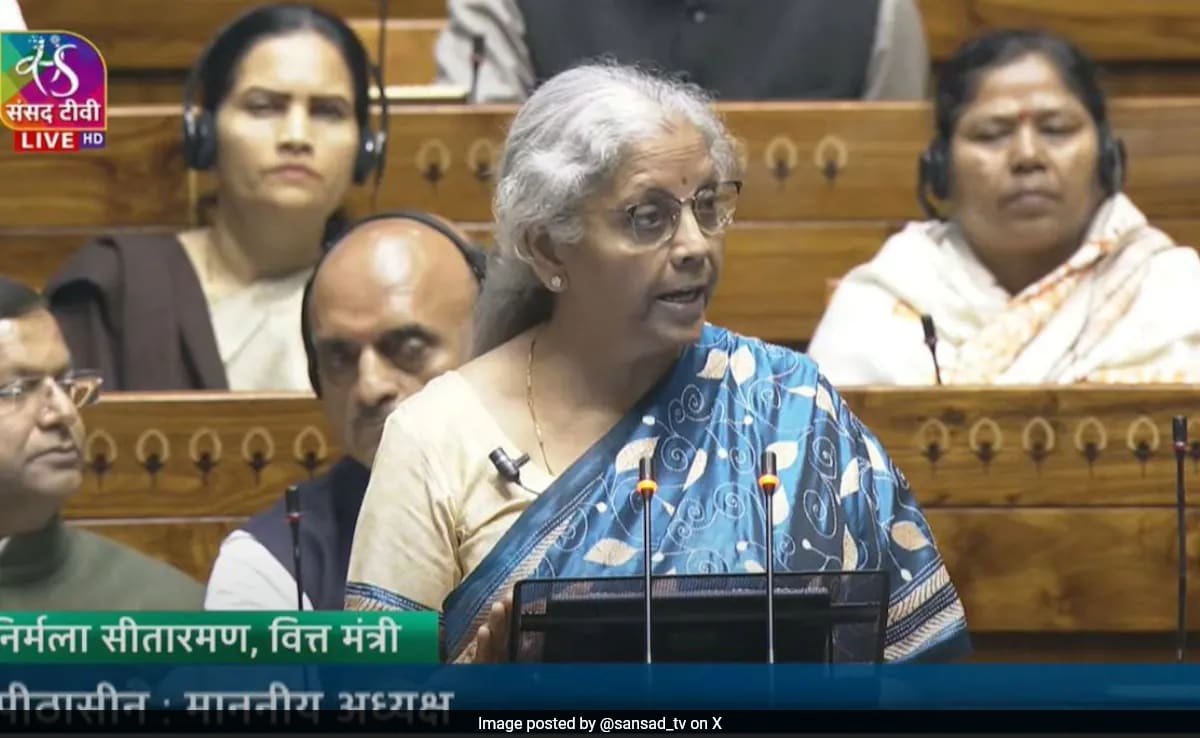Finance Minister Nirmala Sitharaman tabled the Economic Survey 2023/24 in Parliament Monday, a day before she will present a record seventh union budget, and described the Indian economy as being on a “strong wicket and stable footing” and resilient in the face of geopolitical challenges.
“The Indian economy is on a strong wicket and stable footing (and) demonstrating resilience in the face of geopolitical challenges. The economy has consolidated post-Covid recovery with policymakers – fiscal and monetary – ensuring economic and financial stability…” the report said.
Ms Sitharaman pointed out FY24 growth is an estimated 8.2 per cent with the economy crossing the eight per cent mark in three of four quarters, and said she expects momentum built over FY23 and FY24 to be carried into FY25, which is expected to see growth between 6.5 and 7 per cent.
And “prospects for continued strong growth beyond FY25 look good… subject to geopolitical, financial market and climatic risks”, the Finance Minister told the Lok Sabha.
This was compared favourably to global economic growth of 3.2 per cent in 2023 (data from the World Economic Forum in April). “The stark difference in growth performance of countries has been on account of domestic structural issues (and) uneven exposure to geopolitical conflicts…” it said.
Headline inflation – which the Reserve Bank expects at 4.5 per cent in FY25 and 4.1 per cent the following year – is “under control”. This is given a normal monsoon and no external or policy shock
The inflation rate of some food items, however, has elevated, the report said.
Food inflation, which was 6.6 per cent in FY23, increased to 7.5 per cent in FY24, the report said.
The increase was blamed on unfavourable weather conditions that restricted production. And the farmers faced challenges due to extreme weather events and depleted reservoirs, the report said.
Retail inflation, which averaged 6.7 per cent in FY23, was brought down to 5.4 per cent in FY24 as a result of the government’s “timely policy interventions and the RBI’s price stability measures”.
This is the lowest level since the pandemic, the Economic Survey noted.
The Economic Survey also highlighted the government’s “thrust on capex and sustained momentum in private investment has boosted capital formation growth… by nine per cent in real terms in FY24”.
On fiscal balances, the Survey said “tax compliance gains driven by procedural reforms, expenditure restraint, and increasing digitisation” had helped offset “expansionary public investment”.
On the Current Account Deficit, the Survey said it stood at 0.7 per cent of GDP in FY24, a big improvement from the deficit of 2 per cent in FY23. “External balance has been pressured by subdued global demand for goods, but strong services exports largely counterbalanced this…” it said.
But “change is the only constant for a country with high growth aspirations…” the report said, noting that for high-recovery phase to be sustained “there has to be heavy lifting on the domestic front…”
This is because a tricky global environment has made it difficult, the government said, to reach agreements on key issues, including trade, investment, and climate change.
The short-term outlook is positive (but) the long-term requires a clear vision, the Economic Survey said.
